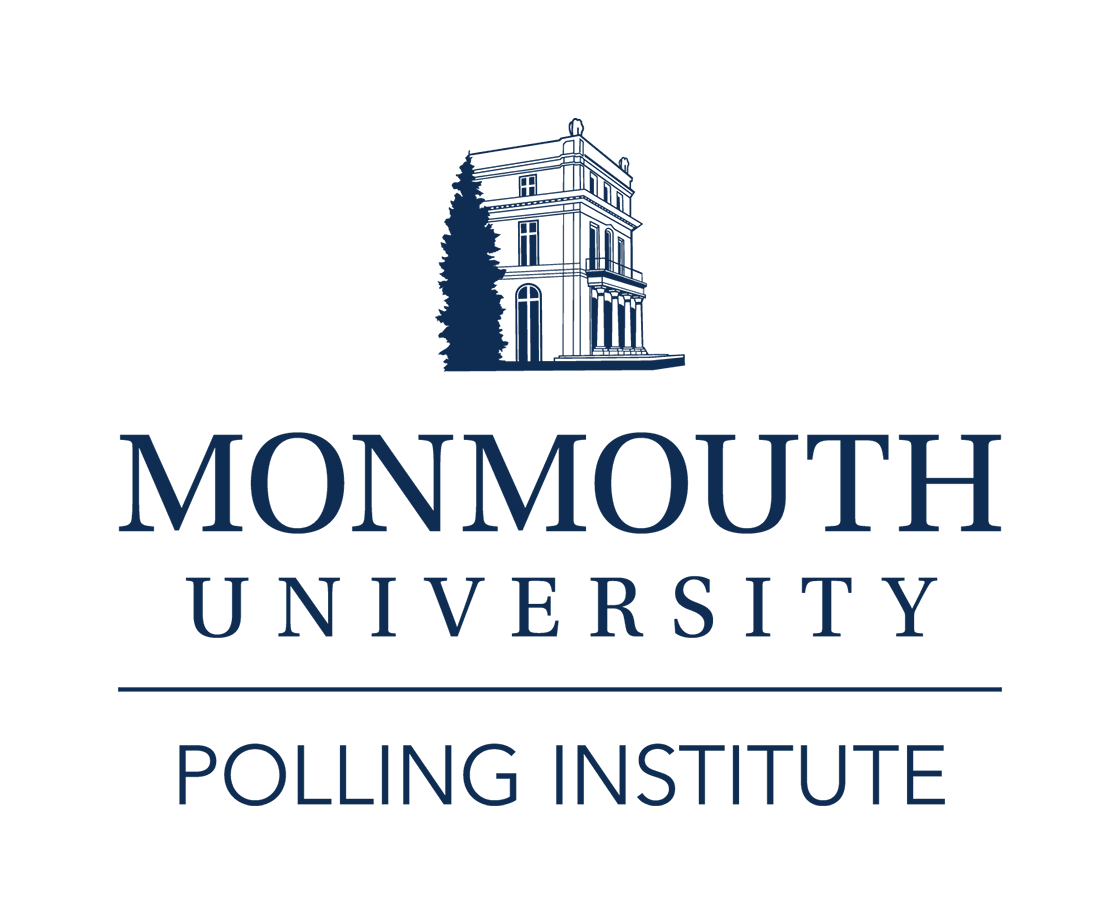West Long Branch, NJ – The public feels that most Americans are angry at Washington and many believe the country would suffer lasting damage if people who did not share their principles got their way in politics. At the same time, the latest national Monmouth University Poll also found that most Americans feel the harsh rhetoric of politics is not justified and believe that we can recapture the spirit that landed astronauts on the moon in the 1960s. However, there are significant differences of opinion among those who hold ideologically extreme views.
In his State of the Union address earlier this month, President Obama spoke about a pervasive sense of anger in the nation’s politics. According to the Monmouth University Poll , more than 6-in-10 Americans believe that all (9%) or most (53%) of their fellow citizens are angry with Washington. Another 23% say about half the country is angry and only 1-in-8 say some (9%) or just a few (4%) Americans are mad at the nation’s capital. Republicans (72%) are somewhat more likely than independents (61%) and Democrats (56%) to feel that the majority of their fellow citizens are angry with Washington. Most of the public (63%) feels that these angry Americans come equally from both parties, while 25% say they tend more to be Republicans and 8% say they tend more to be Democrats.
The behavior of elected officials is one factor that sparks the public’s ire, but Americans are divided on what approach their representatives should take. Half (50%) say that elected officials who are not willing to compromise cause more of the federal government’s problems, while 4-in-10 (40%) say that elected officials who are not willing to stand up for their principles are the root of the problem. This opinion has tilted slightly away from a concern about the lack of compromise. A Monmouth poll taken in January 2015 found 54% who then said an unwillingness to compromise was the bigger problem in Washington while 36% said it was the lack of elected officials sticking to their principles.
Currently, 2-in-3 (68%) Democrats say that a lack of compromise is the bigger problem while just 25% say it is a lack of principles. Nearly half of independents want more compromise (47%) while 40% want more principled stands. A majority (54%) of Republicans, though, say the lack of principles is a bigger problem than the lack of compromise (36%).
“It is not clear how Washington can be fixed when Republicans and Democrats don’t even agree on what the problem is,” said Patrick Murray, director of the independent Monmouth University Polling Institute in West Long Branch, NJ. “We have reached the point where many feel that the opposite side of the political aisle poses an existential threat to the country itself.”
Half (50%) of the public express a great deal of concern that the country would suffer lasting damage if people who hold core political principles different from their own were able put their policies in place. Another 33% have some concern about this leading to lasting damage, and just 1-in-7 have not much (9%) or no concern at all (5%) that the country would be significantly harmed if their political adversaries were in charge of policy making.
Those at the extreme ends of the political spectrum are the most likely to feel a great deal of concern over the fate of the country if their polar opposites had control. This includes 74% of very conservative and 61% of very liberal Americans, compared to 52% of somewhat conservative and 44% of somewhat liberal Americans, and 39% of political moderates.
Despite this lingering sense of doom, more Americans say that the harsh language used in politics today is unjustified (53%) rather than justified (39%) given the current state of the country. There are ideological differences on this question as well, but they are skewed toward one end of the spectrum. While the vast majority (78%) of very liberal Americans say that the harsh rhetoric is not justified, the majority (62%) of their very conservative neighbors actually feel it is justified. A majority of those in the middle of the ideological spectrum, on the other hand, feel that the harsh language of politics today is unjustified, including 58% of somewhat liberal Americans, 52% of somewhat conservative Americans, and 59% of moderate Americans.
“Those who hold very conservative views appear to be the one group with few qualms about political flame throwing,” said Murray.
Pres. Obama ended his State of the Union speech evoking the national spirit that put men on the moon over 40 years ago. A majority (57%) believe it is possible to recapture that spirit, but nearly 4-in-10 (38%) feel those days are gone. Interestingly, Americans with very conservative views (67%) are more likely than those with very liberal views (44%) to feel that the spirit of the 1960s can be rekindled. They are joined by majorities of those who call themselves somewhat conservative (51%), somewhat liberal (58%), and moderate (60%).
The Monmouth University Poll also found that Pres. Barack Obama’s job rating has improved slightly since last month. It now stands at 46% approve and 46% disapprove compared to a more negative 40% approve and 51% disapprove in December. The public’s abysmal view of Congress remains unchanged, currently standing at just 17% approve and 73% disapprove.
The Monmouth University Poll was conducted by telephone from January 15 to 18, 2016 with 1,003 adults in the United States. This sample has a margin of error of ± 3.1 percent. The poll was conducted by the Monmouth University Polling Institute in West Long Branch, NJ.
DATA TABLES
The questions referred to in this release are as follows:
(* Some columns may not add to 100% due to rounding.)
1. Do you approve or disapprove of the job Barack Obama is doing as president?
|
| TOTAL |
REGISTERED VOTER | PARTY ID |
POLITICAL IDEOLOGY | ||||||||
|
Yes | No | Rep | Ind | Dem | Very liberal | Somewhat liberal | Moderate | Somewhat cons. |
Very | |||
| Approve | 46% | 45% | 50% | 14% | 39% | 83% | 93% | 71% | 51% | 32% | 15% | |
| Disapprove | 46% | 48% | 36% | 82% | 45% | 14% | 4% | 24% | 39% | 56% | 83% | |
| (VOL) No opinion | 8% | 7% | 14% | 4% | 16% | 3% | 3% | 6% | 10% | 12% | 2% | |
| TREND: | Jan. 2016 | Dec. 2015 | Oct. 2015 | Sept. 2015 | Aug. 2015 | July 2015 | June 2015 | April 2015 | Jan. 2015 | Dec. 2014 | July 2013 |
| Approve | 46% | 40% | 47% | 45% | 45% | 47% | 44% | 42% | 43% | 41% | 42% |
| Disapprove | 46% | 51% | 45% | 49% | 50% | 46% | 46% | 48% | 48% | 49% | 51% |
| (VOL) No opinion | 8% | 8% | 9% | 6% | 6% | 7% | 10% | 10% | 8% | 10% | 6% |
| Unwtd N | 1,003 | 1,006 | 1,012 | 1,009 | 1,203 | 1,001 | 1,002 | 1,005 | 1,003 | 1,008 | 1,012 |
2. Do you approve or disapprove of the job the U.S. Congress is doing?
|
| TOTAL |
REGISTERED VOTER | PARTY ID |
POLITICAL IDEOLOGY | ||||||||
|
Yes | No | Rep | Ind | Dem | Very liberal | Somewhat liberal | Moderate | Somewhat cons. |
Very | |||
| Approve | 17% | 15% | 25% | 18% | 14% | 19% | 9% | 18% | 17% | 24% | 13% | |
| Disapprove | 73% | 78% | 53% | 71% | 73% | 75% | 85% | 69% | 74% | 65% | 80% | |
| (VOL) No opinion | 10% | 7% | 22% | 11% | 13% | 6% | 6% | 13% | 9% | 11% | 6% | |
| TREND: | Jan. 2016 | Dec. 2015 | Oct. 2015 | Sept. 2015 | Aug. 2015 | July 2015 | June 2015 | April 2015 | Jan. 2015 | Dec. 2014 | July 2013 |
| Approve | 17% | 16% | 17% | 19% | 18% | 18% | 19% | 21% | 18% | 17% | 14% |
| Disapprove | 73% | 73% | 71% | 71% | 72% | 69% | 71% | 67% | 70% | 73% | 76% |
| (VOL) No opinion | 10% | 10% | 12% | 11% | 11% | 12% | 10% | 12% | 11% | 11% | 10% |
| Unwtd N | 1,003 | 1,006 | 1,012 | 1,009 | 1,203 | 1,001 | 1,002 | 1,005 | 1,003 | 1,008 | 1,012 |
3. What causes more problems in the federal government — elected officials who are not willing to stand up for their principles OR elected officials who are not willing to compromise? [CHOICES WERE ROTATED]
|
| TOTAL |
REGISTERED VOTER | PARTY ID |
POLITICAL IDEOLOGY | ||||||||
|
Yes | No | Rep | Ind | Dem | Very liberal | Somewhat liberal | Moderate | Somewhat cons. |
Very | |||
| Not willing to stand up for principles | 40% | 40% | 36% | 54% | 40% | 25% | 26% | 32% | 31% | 47% | 66% | |
| Not willing to compromise | 50% | 50% | 51% | 36% | 47% | 68% | 72% | 55% | 58% | 45% | 27% | |
| (VOL) Depends | 6% | 6% | 6% | 6% | 7% | 4% | 2% | 6% | 6% | 4% | 3% | |
| (VOL) Don’t know | 5% | 4% | 7% | 4% | 6% | 3% | 0% | 6% | 4% | 4% | 4% | |
| TREND: | Jan. 2016 | Jan. 2015 |
| Not willing to stand up for principles | 40% | 36% |
| Not willing to compromise | 50% | 54% |
| (VOL) Depends | 6% | 7% |
| (VOL) Don’t know | 5% | 2% |
| Unwtd N | 1,003 | 1,003 |
4. How many Americans do you think feel angry about Washington politics – all, most, about half, some, or very few?
|
| TOTAL |
REGISTERED | PARTY ID |
POLITICAL IDEOLOGY | ||||||||
|
Yes | No | Rep | Ind | Dem | Very liberal | Somewhat liberal | Moderate | Somewhat cons. |
Very | |||
| All | 9% | 10% | 5% | 13% | 9% | 7% | 10% | 4% | 8% | 7% | 17% | |
| Most | 53% | 55% | 46% | 59% | 52% | 49% | 53% | 47% | 53% | 52% | 61% | |
| About half | 23% | 22% | 26% | 20% | 20% | 30% | 26% | 27% | 25% | 25% | 14% | |
| Some | 9% | 7% | 14% | 4% | 10% | 10% | 8% | 14% | 9% | 11% | 2% | |
| Very few | 4% | 4% | 4% | 3% | 6% | 3% | 0% | 8% | 2% | 5% | 5% | |
| (VOL) Don’t know | 2% | 1% | 4% | 1% | 2% | 2% | 2% | 1% | 3% | 1% | 0% | |
5. And do you think these angry Americans tend more to be Republicans, tend more to be Democrats, or belong equally to both parties?
|
| TOTAL |
REGISTERED | PARTY ID |
POLITICAL IDEOLOGY | ||||||||
|
Yes | No | Rep | Ind | Dem | Very liberal | Somewhat liberal | Moderate | Somewhat cons. |
Very | |||
| Republicans | 25% | 24% | 26% | 33% | 20% | 23% | 32% | 22% | 21% | 23% | 35% | |
| Democrats | 8% | 7% | 10% | 3% | 7% | 13% | 6% | 12% | 7% | 8% | 9% | |
| Equally | 63% | 64% | 56% | 61% | 66% | 59% | 60% | 61% | 67% | 63% | 53% | |
| (VOL) Don’t know | 5% | 4% | 8% | 3% | 6% | 4% | 2% | 5% | 5% | 6% | 4% | |
6. Thinking about people who hold core political principles that are different from yours, how much does it concern you that our country would suffer lasting damage if their policies were put into place – would you say a great deal, some, not much, or not at all?
|
| TOTAL |
REGISTERED | PARTY ID |
POLITICAL IDEOLOGY | ||||||||
|
Yes | No | Rep | Ind | Dem | Very liberal | Somewhat liberal | Moderate | Somewhat cons. |
Very | |||
| Great deal | 50% | 53% | 36% | 63% | 40% | 52% | 61% | 44% | 39% | 52% | 74% | |
| Some | 33% | 30% | 41% | 28% | 33% | 36% | 20% | 37% | 42% | 29% | 19% | |
| Not much | 9% | 8% | 12% | 5% | 14% | 7% | 16% | 6% | 10% | 13% | 3% | |
| Not at all | 5% | 5% | 5% | 1% | 9% | 3% | 0% | 6% | 6% | 2% | 2% | |
| (VOL) Don’t know | 4% | 3% | 5% | 3% | 5% | 2% | 3% | 6% | 3% | 4% | 2% | |
7. Do you feel that the harsh language used in politics today is justified or unjustified given the current state of the country?
|
| TOTAL |
REGISTERED | PARTY ID |
POLITICAL IDEOLOGY | ||||||||
|
Yes | No | Rep | Ind | Dem | Very liberal | Somewhat liberal | Moderate | Somewhat cons. |
Very | |||
| Justified | 39% | 37% | 47% | 56% | 37% | 26% | 15% | 35% | 34% | 40% | 62% | |
| Unjustified | 53% | 54% | 49% | 36% | 54% | 67% | 78% | 58% | 59% | 52% | 29% | |
| (VOL) Language is not harsh | 3% | 3% | 1% | 2% | 3% | 3% | 8% | 1% | 2% | 4% | 3% | |
| (VOL) Don’t know | 6% | 6% | 3% | 6% | 6% | 4% | 0% | 6% | 4% | 5% | 7% | |
8. Thinking about the challenges that America faces today, do you think we can recapture the kind of spirit that helped us land men on the moon over 40 years ago, or is the spirit of those days gone?
| TOTAL |
REGISTERED | PARTY ID |
POLITICAL IDEOLOGY | |||||||||
|
Yes | No | Rep | Ind | Dem | Very liberal | Somewhat liberal | Moderate | Somewhat cons. |
Very | |||
| Can recapture that spirit | 57% | 57% | 58% | 60% | 59% | 53% | 44% | 58% | 60% | 51% | 67% | |
| Those days are gone | 38% | 38% | 37% | 36% | 35% | 43% | 50% | 36% | 37% | 43% | 29% | |
| (VOL) Never had that spirit | 1% | 1% | 0% | 1% | 1% | 1% | 2% | 1% | 0% | 1% | 1% | |
| (VOL) Don’t know | 4% | 4% | 5% | 3% | 6% | 3% | 4% | 4% | 3% | 5% | 3% | |
The Monmouth University Poll was sponsored and conducted by the Monmouth University Polling Institute from January 15 to 18, 2015 with a national random sample of 1,003 adults age 18 and older. This includes 650 contacted by a live interviewer on a landline telephone and 353 contacted by a live interviewer on a cell phone, in English. Monmouth is responsible for all aspects of the survey design, data weighting and analysis. Final sample is weighted for region, age, education, gender and race based on US Census information. Data collection support provided by Braun Research (field) and SSI (RDD sample). For results based on this sample, one can say with 95% confidence that the error attributable to sampling has a maximum margin of plus or minus 3.1 percentage points (unadjusted for sample design). Sampling error can be larger for sub-groups (see table below). In addition to sampling error, one should bear in mind that question wording and practical difficulties in conducting surveys can introduce error or bias into the findings of opinion polls.
|
POLL DEMOGRAPHICS (weighted) | |||
| 29% Rep | 49% Male | 32% 18-34 |
66% White |
| 40% Ind | 51% Female | 36% 35-54 |
12% Black |
| 31% Dem | 32% 55+ |
15% Hispanic | |
|
7% Asian/Other | |||
Click on pdf file link below for full methodology and results by key demographic groups.




